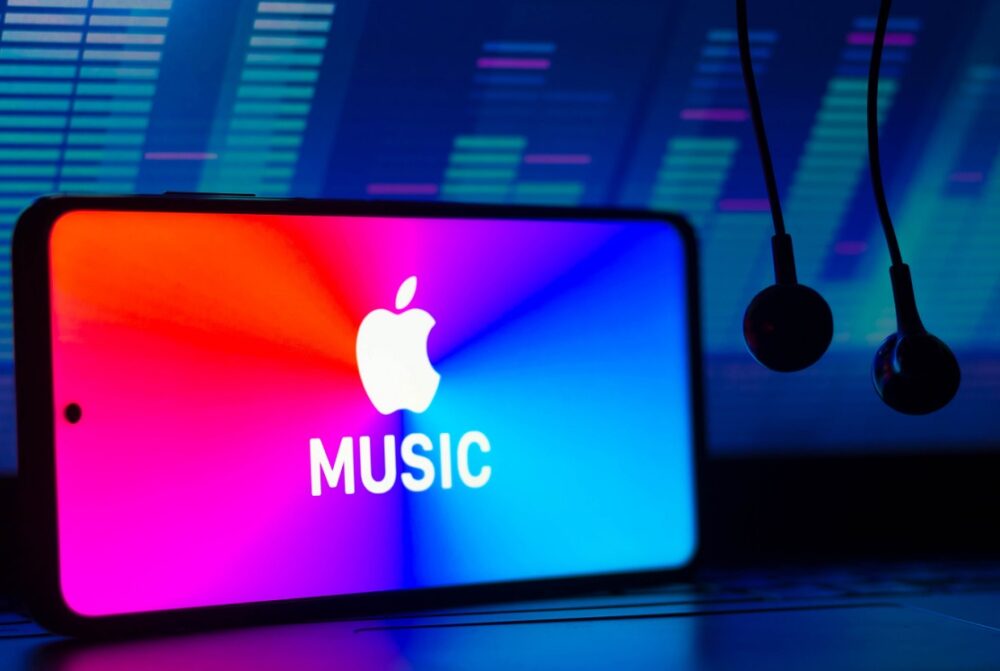Apple’s Remarkable Sales Growth Amidst Global Chip Shortages
Apple Inc. has once again demonstrated its resilience and market prowess by recording impressive sales figures, even as the tech world grapples with significant chip shortages. This unexpected surge in sales has left industry analysts and competitors alike in awe, as Apple continues to defy the odds. How has the tech giant managed to thrive in such challenging times? The answer lies in a combination of strategic planning, innovation, and a loyal customer base.
Strategic Inventory Management
One of the key factors behind Apple’s success during the chip shortage is its exceptional inventory management. The company’s foresight and strategic planning have allowed it to navigate supply chain disruptions more effectively than many of its competitors. By securing long-term contracts with chip manufacturers and diversifying its supply chain, Apple has ensured a steady flow of essential components for its products.
This approach has enabled Apple to maintain production levels and meet consumer demand, even when other tech companies have struggled with delays and shortages. The company’s ability to anticipate and mitigate potential supply chain issues has been a significant advantage, allowing it to continue rolling out new products and updates without major disruptions. Additionally, Apple has invested heavily in its own production capabilities, including the development of its in-house M1 chip, which has further bolstered its ability to weather the global chip crisis.
Apple’s strategic inventory management extends beyond just securing chips. The company has also been proactive in managing other critical components, such as display panels and battery technologies, ensuring that all aspects of its product lineup remain robust. This multi-faceted approach to inventory management underscores Apple’s commitment to maintaining uninterrupted production and delivery schedules, even in the face of widespread industry challenges.
Innovation and Product Appeal
Apple’s commitment to innovation and quality has also played a crucial role in its continued success. The launch of new and improved products, such as the iPhone 13 series, the M1-powered MacBooks, and the latest iterations of the iPad, has kept consumer interest high. These products not only meet but often exceed user expectations, ensuring that Apple remains a top choice for tech enthusiasts and everyday users alike.
The introduction of the M1 chip, in particular, has been a game-changer for Apple’s computing devices. This custom-designed chip offers unparalleled performance and efficiency, setting Apple’s products apart from the competition. The M1 chip has been well-received by both critics and users, further solidifying Apple’s reputation for cutting-edge technology. Moreover, the transition to M1 chips across its product range is paving the way for future innovations, promising even more powerful and energy-efficient devices in the years to come.
Moreover, Apple’s ecosystem of devices and services continues to attract and retain customers. The seamless integration between iPhones, iPads, MacBooks, Apple Watches, and services like iCloud and Apple Music creates a compelling user experience. This ecosystem encourages brand loyalty and repeat purchases, contributing to Apple’s robust sales figures. Apple’s focus on user experience goes beyond just hardware; the company continually updates its software to enhance functionality and security, keeping its user base engaged and satisfied.
Apple’s innovation strategy also includes exploring new product categories and technologies. The company’s rumored ventures into augmented reality (AR) and virtual reality (VR) devices, as well as its ongoing developments in health and fitness technology, signal a future where Apple products could become even more integral to daily life. These initiatives not only keep Apple at the forefront of technological advancements but also open up new revenue streams and market opportunities.
Loyal Customer Base
Apple’s loyal customer base is another significant factor behind its impressive sales performance. The company’s focus on customer satisfaction and its reputation for delivering high-quality products have cultivated a dedicated following. This loyalty is evident in the high rates of repeat purchases and customer retention. Apple’s ability to consistently meet and exceed customer expectations has created a strong bond between the brand and its users, a bond that proves resilient even during challenging times.
Apple’s marketing strategies also play a role in maintaining this loyalty. The company’s marketing campaigns effectively highlight the unique features and benefits of its products, creating a sense of anticipation and excitement among consumers. Additionally, Apple’s retail stores and customer support services provide a positive and personalized shopping experience, further strengthening customer relationships. The Apple Store experience, both online and offline, is designed to be user-friendly and engaging, ensuring that customers feel valued and supported throughout their purchasing journey.
Another aspect of Apple’s appeal is its commitment to privacy and security. In an era where data breaches and privacy concerns are rampant, Apple’s emphasis on protecting user data has resonated with consumers. This focus on privacy not only enhances user trust but also differentiates Apple from competitors who may not prioritize data security to the same extent. Apple’s transparency regarding data usage and its implementation of robust security measures have further solidified its reputation as a trustworthy brand.
Furthermore, Apple’s approach to environmental sustainability has garnered positive attention and loyalty from eco-conscious consumers. The company’s initiatives to reduce its carbon footprint, such as using recycled materials in its products and striving for carbon neutrality across its entire supply chain, resonate with customers who value environmental responsibility. This commitment to sustainability not only benefits the planet but also strengthens Apple’s brand image and customer loyalty.
Global Reach and Market Penetration
Apple’s global reach and market penetration have also contributed to its sales surge. The company has a strong presence in key markets around the world, including North America, Europe, and Asia. In particular, Apple’s growth in emerging markets such as China and India has been noteworthy. These regions represent significant opportunities for expansion, with a growing middle class and increasing demand for premium tech products.
Apple’s ability to adapt its products and marketing strategies to suit different markets has been instrumental in its global success. For example, the company offers localized content and services, such as region-specific apps and language support, to cater to the diverse needs of its international customer base. This localized approach helps Apple build strong connections with consumers in different regions and drives sales growth. Additionally, Apple’s partnerships with local retailers and carriers have expanded its reach, making its products more accessible to a broader audience.
Apple’s success in international markets is also supported by its investments in local infrastructure. The company has established research and development centers in various countries, fostering innovation and tailoring products to meet regional preferences. These investments not only bolster Apple’s global presence but also contribute to local economies, creating jobs and supporting technological advancements in those regions.
Challenges and the Road Ahead
Despite its impressive performance, Apple is not immune to the challenges posed by the global chip shortage. The company has acknowledged that supply constraints could impact its ability to meet demand in the coming months. However, Apple’s proactive measures and strategic planning suggest that it is well-equipped to navigate these challenges. The company’s ongoing efforts to diversify its supply chain and invest in alternative manufacturing solutions demonstrate its commitment to maintaining product availability and customer satisfaction.
Looking ahead, Apple is likely to continue focusing on innovation and expanding its product lineup. The upcoming releases of new products and updates are expected to generate significant consumer interest and drive sales. Additionally, the company’s investments in emerging technologies, such as augmented reality and autonomous vehicles, hint at exciting future prospects. These advancements have the potential to revolutionize various industries, positioning Apple as a key player in the next wave of technological innovation.
In conclusion, Apple’s ability to thrive amidst the global chip shortage is a testament to its strategic foresight, innovation, and strong customer relationships. The company’s continued focus on delivering high-quality products and services ensures that it remains a dominant force in the tech industry, regardless of the challenges it faces. As Apple navigates the complexities of the global supply chain and explores new frontiers in technology, its commitment to excellence and customer satisfaction will undoubtedly drive its sustained growth and success.










